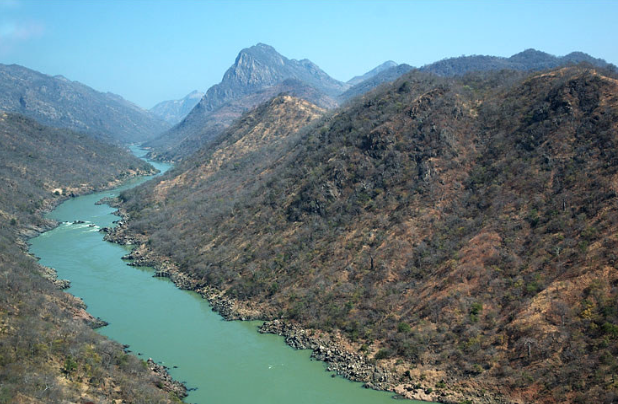- An international consortium headed by the French electricity company, EDF, signed an agreement in Maputo on Wednesday with Mozambican state bodies to implement the Mphanda Nkuwa hydro-electric project, on the Zambezi river, in the central province of Tete.
The Mphanda Nkuwa project involves building a dam about 60 kilometres downstream from the existing dam at Cahora Bassa, and a power station that will generate 1,500 megawatts of electricity. There will also be a high voltage transmission line running for 1,300 kilometres from the Zambezi Valley to Maputo.
Other members of the EDF-headed consortium include a second French company, TotalEnergies, and Sumitomo of Japan. For the Mozambican side, agreements were signed by the two Mozambican publicly owned electricity companies, EDM, and Hidroelectrica de Cahora Bassa (which operates the Cahora Bassa dam), and by the Mphanda Nkuwa Implementation Office (GMNK).
Construction of the dam and power station is budgeted at 5.5 billion US dollars. During the construction phase, Mphanda Nkuwa will employ about 7,000 workers, and once the power is being generated there will be 3,000 permanent jobs, 95 per cent of them occupied by Mozambicans.
Financial closure of the project is forecast for late 2024, and the construction work should be concluded by 2030.
Speaking at the Wednesday ceremony, President Filipe Nyusi said Mphanda Nkuwa will help meet the energy requirements for Mozambican industrialization and for the southern African region.
Such a modern hydro-electric project, he added, is necessary “because of the need to reduce the use of polluting sources of electricity”.
The Mphanda Nkuwa and Cahora Bassa dams, Nyusi claimed, will make Mozambique one of the countries “at the forefront of energy transition as part of the international undertaking to reduce global warming arising from the burning of fossil fuels”.
Nyusi claimed that implementation of the Mphanda Nkuwa project “represents Mozambique’s promise to humanity to protect the environment”
Mozambique’s power sector currently has a capacity to generate 2,750 megawatts. With the Mphanda Nkuwa dam, it is expected that the country will generate 4,300 megawatts.
The project is supported by the European Union, the European Investment Bank, and the African Development Bank, which, together with EDM itself, have already promised to disburse over 500 million dollars. Other partner who have pledged support include the French Development Agency, the Southern African Development Bank and the Islamic Development Bank.
At the ceremony, the African Development Bank (AfDB) stressed its commitment to continue supporting projects of power generation in Mozambique.
According to the AfDB representative, Henry Baldeh, the Bank “as a partner in development and growth, will continue to support the government’s efforts to provide convenient energy and various areas of financial instruments, including guarantees and the financial investment needed to ensure the success of the project”, he said.
“The ADB would like to reiterate its commitment as advisor to the project to position itself as a partner of the government in achieving its objectives, including achieving universal access to energy by 2030”, Baldeh added.
“The signing of this project is extremely important given Mozambique’s ambition to transform its agrarian economy into an industrialized and global economy, while continuing to be a leader in the energy market”, he said.
For her part, Béatrice Buffon, representative of the EDF-led consortium, said that the Mphanda Nkuwa project was the right partnership and would accelerate the country’s economic development.
“Mphanda Nkuwa is more than a project, it’s an ambition. Mozambique’s ambition to achieve 100% electrification, ambition to accelerate its economic development and ambition to achieve the energy transition by adding 1,500 Megawatts of power generation capacity”, she said.
Source: AIM















